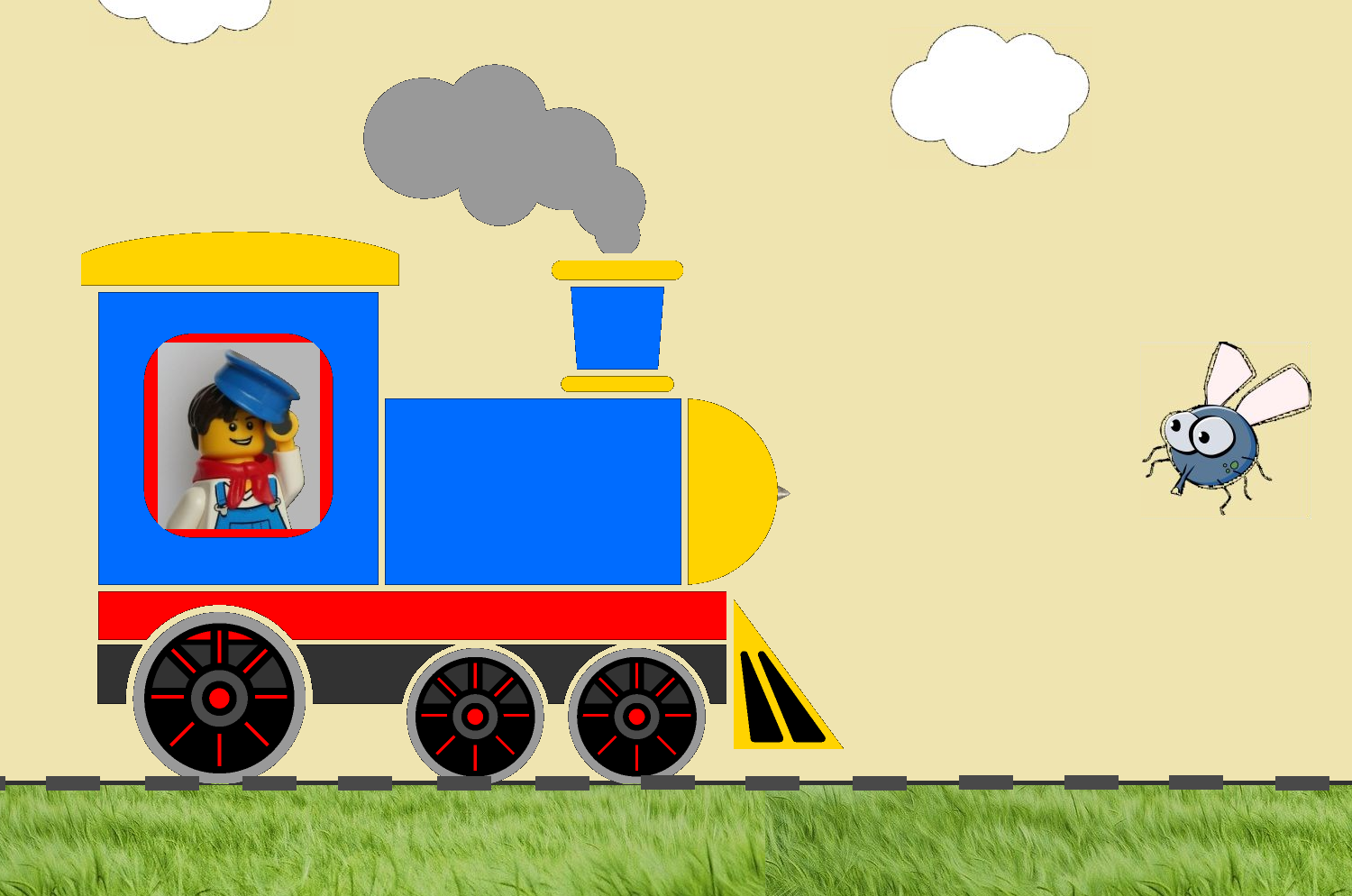
How much does that fly slow the train down that it has hit? The train will suffer no apparent change in speed, yet it does slow down, even if there is no obvious change. How much does it slow down?
Fly Hitting a Train: Specific Numbers
We will attempt to use realistic numbers. We choose the following:
Locomotive: 4,000 tons [a light train]
Fly: 14 milligrams
Locomotive Speed: Exactly 30 mph
Fly Speed: 5 mph
Although the numbers vary, the above choice of values will give us a good idea of what occurs when a fly hits a train head-on.
Momentum First
It is not merely the speed of the fly and the speed of the train that determines how much the train slows. It is the momentum. One equation for momentum (p) is:
P = M•V
This equation tells us momentum equals mass times velocity. Now momentum is a directional property. The train is traveling in one direction, the fly in the opposite direction. So if we take the momentum of the train, and call it positive, the momentum of the fly is negative.
Mtrain – Mfly = Mremaining
(8,000,000 lbs) • (30 mph) – (3.1×10–5 lbs) • (5 mph) =
240,000,000 lbs-mph – 0.00016 lbs-mph = 239,999,999.99984 lbs-mph
Speed Second
Let’s convert the momentum of the train into its reduced speed.
239,999,999.99984 lbs-mph / 8,000,000 lbs = 29.99999999998 mph
The fly slowed the train by 0.00000000002 mph. That is, 2 one-hundred-billionths of a mile per hour. Not significant, perhaps, but real? Yes.
Note: You might also enjoy Spacecraft Invisibility – Is Cloaking Possible?
References:
- Train Conductor Headquarters: How Much Does A Train Weigh?
- Insect-O-Cutor: Facts About the Common Housefly

Isn’t that the same as “The Butterfly Effect”? Well, it is part of the butterfly effect I believe. When one butterfly flaps its wings in the Amazon forest it in turn makes gale-force winds over the planes in mid-America. Something like that. The collective force of millions of butterflies creates a measurable amount of air movement? Can anybody clarify this?